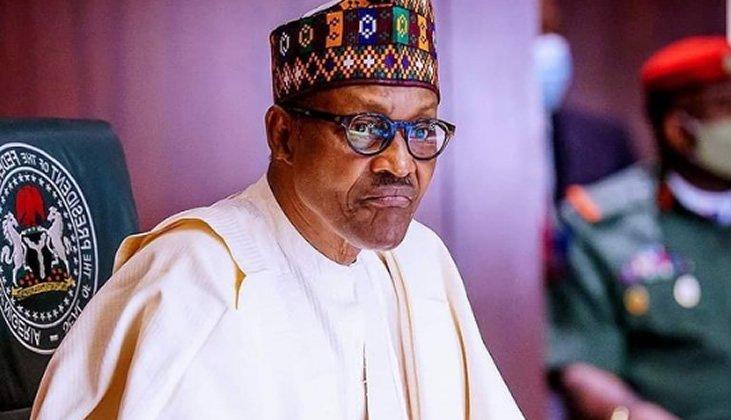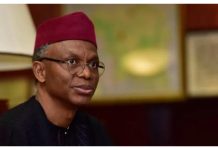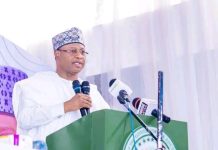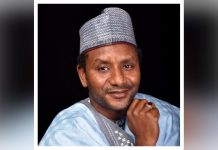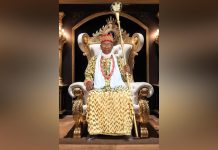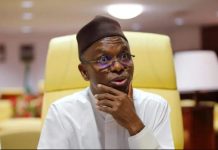Abba Hamisu Sani
Africa-Press – Nigeria. By May 29th this year Buhari’ will join the league of the Ex Nigerian Democratically elected Presidents as Obasanjo and Jonathan did.
He is the fourth President elected since the return of Democracy in Nigeria from 1999 to 2023.With Olusegun Obasanjo from 1999 to 2007, late Umaru Yar’aduwa 2007 to 2010 and Goodluck Jonathan that Buhari succeeded in 2015.
Buhari ‘s election as President in 2015 comes with high expectations as he pledges to tackle the lingering insecurity of Boko haram that created so much hatred against Jonathan’s Government.
Economic recovery , Job creation and fighting corruption are the main cardinal agenda of his campaign and Nigerians expected to see massive positive change in that regard.
Economic Policies initiated by Buhari’s Government
Two years into his first tenure President Muhammadu Buhari formally launched the Economic Growth and Recovery Plan for a period of three years, covering 2017 to 2020.
The launch took place at the Council Chamber of the Presidential Villa, Abuja. The plan, which is the brainchild of the Ministry of Budget and National Planning, contains 60 critical initiatives expected to help get Nigeria out of recession and reposition it on the path of sustained growth.
It also focused on five execution priorities, which are central to achieving the 7% growth projected by the end of the Plan period.
The priority areas include Stabilizing the Macroeconomic Environment; Achievement of Agriculture and Food Security; Expansion of Energy Infrastructure capacities (power and petroleum); Improving Transportation Infrastructure and Driving industrialization principally through local and small business enterprises.
During the launch President Buhari assured all Nigerians that the country is approaching the solution of its economic challenges with the same will and commitment his Government has demonstrated in the fight against corruption, terrorism and militancy.
“The Economic Recovery and Growth Plan brings together all our sectoral plans for agriculture and food security, energy and transport infrastructure, industrialization and social investments together in a single document. ’It builds on the Strategic Implementation Plan and sets out an ambitious roadmap to return the economy to growth; and to achieve a 7% growth rate by 2020.” Buhari said.
He added that part of his administration aim is to optimize local content and empower local businesses as he seeks not just to take the Nigerian economy out of recession but to place it on a path of sustained, inclusive and diversified growth.
‘’We are determined to change Nigeria from an import dependent country to a producing nation. We must become a nation where we grow what we eat and consume what we produce. We must strive to have a strong currency (Naira) and a productive economy, ” The President stressed.
The initiative receives legislature support
In his goodwill message at the event, the then Senate Bukola Saraki, lauded the initiative, pledging the support of the Senate in its realization.
“I also pledge that we will make this work because we were consulted and we are part of it. We are also working closely with the ease of doing business committee. Is a great document and we will ensure its implementation.” Saraki said.
Similarly, speaker of the House of Representatives, at that time Yakubu Dogara, while also pledging the support of the House of representative, tasked the executive on the implementation of the programme.
On his part, the Chairman of Nigerian Governors Forum, NGF and governor of Zamfara State, at that time Abdulaziz Yari, said all the 36 governors would key into the initiative to make it work.
“The Economic Recovery and Growth Plan (ERGP) marks a significant milestone in the economic management process of our country. The plan is important not only to the federal government, but also States, as it provides a basis for inclusive growth and development planning. It is no longer news that the Nigerian economy is currently facing a fiscal crisis which has affected development and has seen economic growth decline. It became evident that the country required a recovery and growth plan” Abdulaziz Yari stated.
He added that the Economic Recovery and Growth Plan (ERGP) marks a significant milestone in the economic management process of the country.
Yari recalled that Nigeria had been a burial ground for ideas, urging the stakeholders to ensure that the initiatives wouldn’t go the way of others in the past.
The plan is important not only to the federal government, but also States, as it provides a basis for inclusive growth and development planning.
Yemi Adebowale is an economic analyst and a Columnist with Vanguard News Paper. He described Buhari’s economic Policies as a failure.
The analyst stated this In a write up titled “Ring True ” Published by Vanguard news Paper in October 2022. He added that Buhari’s Government only succeeded in aggravating the challenges.
He described the President’s celebration of economic growth while inaugurating the Presidential Committee on the National Economy which he headed last year as an apparent fantasy growth of the Nigerian economy under his watch.
“Our economy continues to grow despite the adverse effects of rising interest rates, a stronger US dollar, higher inflation across the world, COVID-19 pandemic, the war in Ukraine and the loss of substantial volumes of oil” Buhari stated.
The writer said he guesses that Buhari was celebrating the voodoo Gross Domestic Product (GDP) growth persistently pushed out by the National Bureau of Statistics (NBS), despite the waning in almost all sectors of the economy. The consumption end is also struggling due to the economic crunch. In the most recent second quarter 2022 statement, the ludicrous NBS reported that Nigeria’s GDP grew by 3.54 per cent (year-on-year) in real terms. The NBS has been reporting GDP growth since the fourth Quarter of 2020. How did this agency come about these results in a country witnessing its worst economic decline in almost four decades? Something is amiss somewhere.
Almost all sectors of the Nigerian economy have been experiencing excruciating strains for over seven years. In the non-oil sector (the biggest contributor to Nigeria’s GDP), the likes of agriculture, finance, insurance and transport are struggling. Nigeria’s inclement economic environment has slowed them down. A large number of farmers can’t access their farms due to the activities of terrorists; manufacturing continues to plunge while crude oil production is sliding yet, the NBS is reporting GDP growth.
The GDP report of a country is significant because it gives information about the size of the economy and how it is performing. The growth rate of real GDP is often used as an indicator of the general health of the economy. In broad terms, an increase in real GDP is interpreted as a sign that the economy is doing well. Unfortunately, the growth rate reported by the NBS for the Buhari government is not a true reflection of the health of the Nigerian economy. In practical terms, Nigeria’s economy is not healthy. I suspect that figures are being manipulated.
“Our President has been celebrating an economic growth that is not impacting on the lives of the people in the real sense of it.” Said the analyst. He contined “There is so much poverty in our land amid the growth our President is celebrating. How would he reconcile the large number of people struggling for a meal a day amid the economic growth? Now, many go to bed with supper and wake up not sure of breakfast. The gloomy news is that under Buhari, and with the so-called economic growth, Nigeria surpassed India as the country with the largest number of people living in life-th threatening poverty in the world. How would he reconcile this? ” stated tha analyst.
“The fantasy growth of the Nigerian economy has also not impacted on jobs for the people. The last time the NBS picked up courage to release figures on unemployment was Q4 of 2020 and it reported that Nigeria’s joblessness rate rose from 27.1 per cent in the second quarter of 2020 to 33.3 percent in the fourth quarter of 2020, translating to 23.19 million unemployed people. In practical terms, let’s all look around us; in our homes and those of our neighbors. Of course, we will see an army of unemployed Nigerians in a country supposedly enjoying economic growth. “The analyst emphasized.
He cited a World Bank report titled, “A Better Future for All Nigerians: 2022 Nigeria Poverty Assessment,” released early this year as evidence that noted that poverty reduction had stagnated in this country since 2015, with more Nigerians falling below the poverty line over the years.
This is a validation that the lives of Nigerians are not being positively affected by whatever economic growth is being celebrated.
How can Buhari be talking about economic growth amid decaying federal health institutions, roads and schools across the country? Even the President, his family and his cronies, with their families are regularly flown abroad to enjoy foreign medical facilities and schools.
The Naira, our symbol of nationhood, is now in shreds and our President is telling us about economic growth. The massive depreciation of our currency Naira is also contributing to the poverty ravaging the nation and the crisis in the manufacturing sector. as, the Naira was trading for more than 700 Naira to the Dollar in the real market. This is the same Naira Buhari inherited at about Naira 220 Naira to a Dollar ” I never in my wildest imagination thought that our dear Currency would ever depreciate to the level we are witnessing today. Now that the exchange rate has become extremely ridiculous, people who protested against 220 Naira to One Dollar under the Jonathan administration are nowhere to be found. Our symbol of statehood has never been this badly battered in all our years as a country. Yet, Buhari is continuing with a muggy forex policy that has led to a record gap between the official and parallel market exchange rates.
For More News And Analysis About Nigeria Follow Africa-Press


